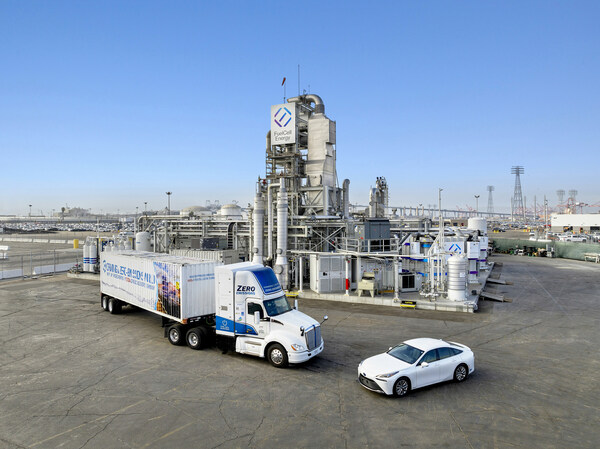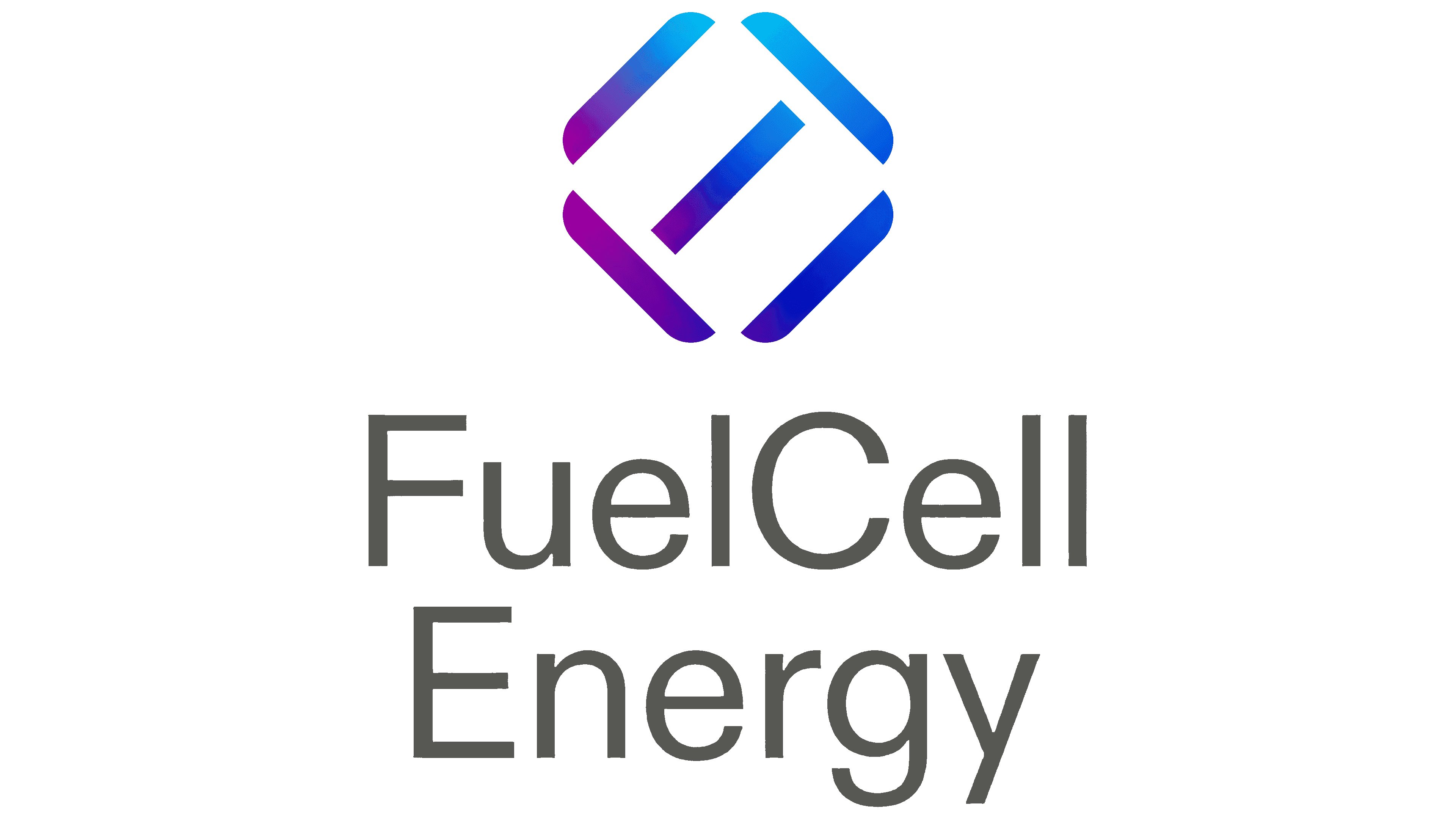FuelCell Energy and Toyota Announce Completion of World's First "Tri-gen" Production System
Published by Todd Bush on September 7, 2023
- FuelCell Energy's Tri-gen technology produces three products: renewable electricity, renewable hydrogen, and usable water
- Marks Toyota's first port vehicle processing facility in the world to be powered by onsite-generated, 100 percent renewable electricity
- Models how fuel cell technology can play a role in helping reduce emissions from commercial operations, as a scalable system that can be implemented in a variety of settings/locations
PLANO, Texas and DANBURY, Conn., Sept. 7, 2023 /PRNewswire/ -- FuelCell Energy, Inc. (Nasdaq: FCEL) and Toyota Motor North America, Inc. (Toyota) have announced the completion of the first-of-its-kind "Tri-gen system" at Toyota's Port of Long Beach operations. The Tri-gen system, owned and operated by FuelCell Energy, produces renewable electricity, renewable hydrogen, and water from directed biogas. FuelCell Energy has contracted with Toyota to supply the products of Tri-gen under a 20-year purchase agreement.

Tri-gen is an example of FuelCell Energy's ability to scale hydrogen-powered fuel cell technology, an increasingly important energy solution in the global effort to reduce carbon emissions. Tri-gen will enable Toyota Logistic Services (TLS) Long Beach to be the company's first port vehicle processing facility in the world powered by onsite-generated, 100 percent renewable energy and represents the types of innovative and bold investments the company is making as part of its environmental sustainability strategy.
"By utilizing only renewable hydrogen and electricity production, TLS Long Beach will blaze a trail for our company," said Chris Reynolds, Chief Administrative Officer, Toyota. "Working with FuelCell Energy, together we now have a world-class facility that will help Toyota achieve its carbon reduction efforts, and the great news is this real-world example can be duplicated in many parts of the globe."
>>Read more about FuelCell Energy here
FuelCell Energy CEO Jason Few said, "FuelCell Energy is committed to helping our customers surpass their clean energy objectives. By working with FuelCell Energy, Toyota is making a powerful statement that hydrogen-based energy is good for business, local communities, and the environment. We are extremely pleased to showcase the versatility and sophistication of our fuel cell technology and to play a role in supporting Toyota's environmental commitments."
Tri-gen Supports Toyota's Port Facilities and Operations
FuelCell Energy's innovative fuel cell technology will support Toyota's operations at the port through an electrochemical process that converts directed renewable biogas into electricity, hydrogen, and usable water with a highly efficient, combustion-free process that emits virtually no air pollutants.
Tri-gen produces 2.3-megawatts of renewable electricity, part of which will be off-taken by TLS Long Beach to support its operations at the port, which processes approximately 200,000 new Toyota and Lexus vehicles annually.
The FuelCell Energy Tri-gen system can produce up to 1,200 kg/day of hydrogen which will provide for TLS Long Beach's fueling needs for its incoming light-duty fuel cell electric vehicle (FCEV) Mirai, while also supplying hydrogen to the nearby heavy-duty hydrogen refueling station to support TLS logistics and drayage operations at the port. Hydrogen production can be ramped up and down based on needs/requirements.
1,400 gallons of water will be co-produced per day from Tri-gen's hydrogen production process and will be used by TLS Long Beach for car wash operations for vehicles that come into port prior to customer delivery. This will help decrease the use of constrained local water supplies by approximately half a million gallons per year.
>> Additional Reading: Carbon Capture Revolution: ExxonMobil, FuelCell Energy, and Porthos Spearhead Sustainable Innovation
Tri-gen System Benefits the Community
By supporting TLS operations at the Port of Long Beach, Tri-gen's carbon neutral products are expected to reduce more than 9,000 tons of CO₂ emission from the power grid each year.
"Renewable hydrogen is an important fuel for the future of the Port of Long Beach and the shipping industry," said Port of Long Beach CEO Mario Cordero. "The renewable hydrogen generated by the 'Tri-gen' system that Toyota commissioned, and similar projects, is part of our multi-strategy approach to help fuel the transition of equipment like locomotives, harbor craft, cargo-handling equipment and trucks to zero emissions."
Tri-gen will also help to avoid more than six tons of grid NOx emissions, which are harmful to both people and the environment, and has the potential to reduce diesel consumption by more than 420,000 gallons per year by using hydrogen-powered fuel cell trucks in port operations.
Additionally, excess electricity not used by TLS will be delivered to the local utility, Southern California Edison, under the California Bioenergy Market Adjustment Tariff (BioMAT) program, adding a renewable, resilient, and affordable baseload electric generation resource to the electric grid.
About FuelCell Energy
FuelCell Energy is a global leader in sustainable clean energy technologies that address some of the world's most critical challenges around energy, safety, and global urbanization. It collectively holds more than 450 fuel cell technology patents in the United States and globally. As a leading global manufacturer of proprietary fuel cell technology platforms, FuelCell Energy is uniquely positioned to serve customers worldwide with sustainable products and solutions for businesses, utilities, governments, and municipalities. The Company's solutions are designed to enable a world empowered by clean energy, enhancing the quality of life for people around the globe.
About Toyota
Toyota (NYSE:TM) has been a part of the cultural fabric in North America for more than 65 years, and is committed to advancing sustainable, next-generation mobility through our Toyota and Lexus brands, plus our more than 1,800 dealerships.
Toyota directly employs more than 63,000 people in North America who have contributed to the design, engineering, and assembly of nearly 45 million cars and trucks at our 13 manufacturing plants. By 2025, Toyota's 14th plant in North Carolina will begin to manufacture automotive batteries for electrified vehicles. With more electrified vehicles on the road than any other automaker, Toyota currently offers 24 electrified options. For more information about Toyota, visit www.ToyotaNewsroom.com.
Subscribe to the newsletter
Daily decarbonization data and news delivered to your inbox
Follow the money flow of climate, technology, and energy investments to uncover new opportunities and jobs.
Companies
Latest issues
-
Cummins Quit Electrolyzers. Electric Hydrogen Didn't.
Inside This Issue ⚡ Cummins Quit Electrolyzers. Electric Hydrogen Didn't. 🧪 New Electrified Method Captures Carbon Dioxide From Air 🌾 Iowa Could Be on the Cusp of a Hydrogen Rush; Lawmakers Weigh ...
-
Inside America’s Carbon Capture Reality Check
Inside This Issue ⚡ Duke Energy Florida Goes Live With First 100% Hydrogen System ✈️ Air bp Signs Agreement With Airbus on Flight Services and Fuel Supplies in Europe 🌊 Pairing Reefs and Mangroves...
-
Three Nebraska Plants Prove Ethanol CCS Actually Works
Inside this Issue 🌽 Three Nebraska Plants Prove Ethanol CCS Actually Works ☀️ SunHydrogen and CTF Solar Sign Agreement to Accelerate Hydrogen Panel Manufacturing 🧪 GenH2 Completes Major Milestone:...
Company Announcements
-
A Firm Capturing Carbon at NYC High-Rises Tackles Canadian Gas Pipelines
CarbonQuest’s new project cutting emissions from an engine along a gas pipeline could help it scale to applications at universities, AI data centers, and factories. Startup CarbonQuest already pro...
-
Nova Scotia’s CarbonRun Reaches Carbon Capture Milestone With ‘River Liming’ Project
HALIFAX — A Nova Scotia-based company has accomplished a milestone in the world of carbon capture, with its project to store carbon dioxide in rivers using limestone. CarbonRun, co-founded by Dalh...
-
SOEC co-electrolysis simultaneously produces hydrogen and carbon monoxide, the feedstock for synthetic fuels, allowing for cost reductions by simplifying the process and increasing efficiency Cont...
-
Super6 Carbon and Mangrove Systems have signed a strategic agreement to use Mangrove’s digital MRV platform across Super6’s engineered carbon removal network in the US TORONTO, ON — February 10, 2...
